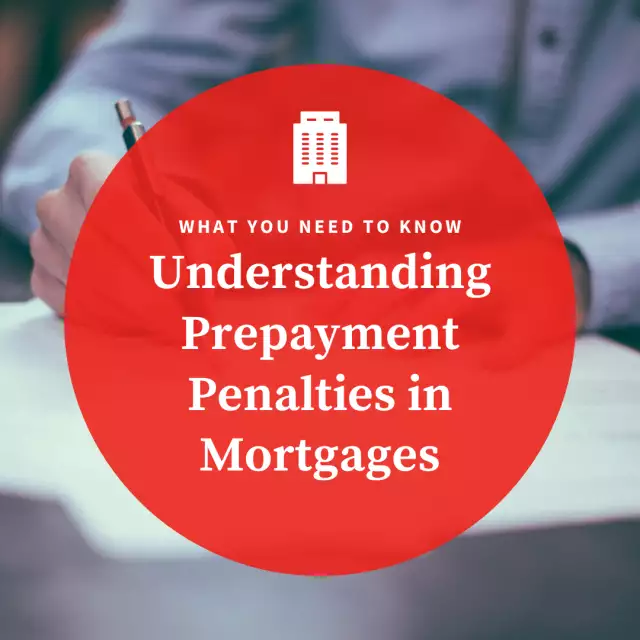Understanding Prepayment Penalties in Mortgages: What You Need to Know
Understanding Prepayment Penalties in Mortgages: What You Need to Know
If you're considering purchasing a home or refinancing your current mortgage, you may have come across the term "prepayment penalty." This is a fee that some lenders charge if you pay off your mortgage early or make larger payments than your agreed-upon schedule. While not all mortgages come with prepayment penalties, it's crucial to understand the terms of any penalties before signing on the dotted line. In this post, we'll discuss prepayment penalties in more detail and provide some tips for navigating this aspect of the mortgage process.
What are Prepayment Penalties?
A prepayment penalty is a fee that is charged if you pay off your mortgage early or make larger payments than your agreed-upon schedule. The penalty is intended to compensate the lender for any interest payments they would have received if you had stuck to the original payment schedule. While the specifics of prepayment penalties can vary, they typically amount to a certain percentage of your remaining mortgage balance or a certain number of months' worth of interest payments.
Why Do Lenders Charge Prepayment Penalties?
Lenders charge prepayment penalties to ensure that they will receive a certain amount of interest payments from borrowers over the life of the loan. When you take out a mortgage, the lender is taking a risk by loaning you a significant amount of money. By charging a prepayment penalty, the lender can mitigate this risk by ensuring that they'll receive a certain amount of interest payments even if you pay off the loan early.
Types of Prepayment Penalties
There are two main types of prepayment penalties: hard and soft.
A hard prepayment penalty isa fee that is charged if you pay off your mortgage before a certain date or if you pay more than a certain amount each year. This type of penalty is usually a percentage of your remaining mortgage balance, and it can be quite expensive. Hard prepayment penalties are less common than soft prepayment penalties and are usually found in mortgages with higher interest rates or riskier borrowers.
A soft prepayment penalty isa fee that is charged if you refinance your mortgage with another lender but not if you pay off your mortgage in full. This type of penalty is usually a certain number of months' worth of interest payments and is less expensive than a hard prepayment penalty.
How to Avoid Prepayment Penalties
If you want to avoid prepayment penalties, the best strategy is to choose a mortgage that doesn't have them. Many mortgages don't have prepayment penalties, and you can often negotiate this aspect of the loan with the lender before signing on the dotted line. If you do end up with a mortgage that has prepayment penalties, it's important to understand the terms of the penalties and make sure that you're comfortable with them before signing the loan agreement.
In some cases, it may make financial sense to pay off your mortgage early despite the prepayment penalty. For example, if you're planning to sell your home in the near future or if you have extra cash on hand that you want to put towards your mortgage, paying off your mortgage early may save you money in the long run even with the penalty.
Conclusion
Prepayment penalties can be a confusing and frustrating aspect of the mortgage process, but they're an important factor to consider when taking out a mortgage. If you're considering purchasing a home or refinancing your current mortgage, it's important to understand the terms of any prepayment penalties and make sure that you're comfortable with them before signing the loan agreement. By doing so, you can avoid unpleasant surprises down the line and make the most informed decision about your mortgage.
How to Refinance Mortgages on Investment Properties?
3 Advantages of Making Interest Payments on Reverse Mortgages



